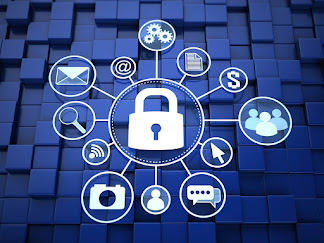DIFFERENT TYPES OF ANTIVIRUS SCANS
Scanning your system with an antivirus program is important to keep your system safe. But what kind of virus scan should you use? Complete, fast or personalized?
The easiest way to keep your system safe and secure is regular scanning your device with the best antivirus software. With an antimalware suite, your antivirus is a critical feature of your system's security.But what kind of virus scan should you run? Are there any
differences between Full scan, Quick scan, and Custom scan? Let's see what
happens when you press that "Analyze" button.
How Does Antivirus Work?
Before we consider exactly what each type of antivirus scan
does, let's review the general role of antivirus.
Your antivirus works mainly in the background of your system.
It carefully notes your system files. When a file is modified, your antivirus
scans it to make sure that these modifications are not harmful to your system.
The antivirus checks the properties of the file to make sure
that it is not part of a malicious program. Likewise, your antivirus suite has
a long list of known malicious file signatures. If you download a file with a
known signature, your antivirus should take care of it but sometimes crashes do
happen.
Another antivirus trick is to use behavioral analysis to
assess unknown viruses. In this case, the antivirus does not have a signature
in its database to compare a file. Antivirus monitors all the files on your
system. If the file attempts certain activity on your system, the antivirus
will quarantine it.
Antivirus suites combine these two defense tactics and many
more to keep your system malware free.
The Different Types of Antivirus Scans
Two or three different scanning options are available in most
of the antivirus. Typically, these options are typically a "full"
system scan, a "custom" system scan, and a "fast / hyper /
fast" scan option. This option is sometimes referred to as
"smart" scan. The scan names are apparently self-explanatory.
Full
analysis
A full scan performs a thorough check of your entire system,
inside and out. Depending on the antivirus program, the antivirus will scan the
following objects:
All hard drives, removable storage and network drives
· RAM
system memory
· System
backups
· Startup
files
· Registry
items
A full system scan takes several hours, depending on how much
data you have stored. In this, a full system scan is a deep, in-depth scan of
everything on your system.
When to use a full scan when you need to check your entire
system. Some security experts recommend performing a full scan every two weeks.
But for most people, only one full scan per month is usually sufficient.
Custom
scan
Custom scan therefore gives you the same deep scan
functionality as a full scan, but you choose which locations to scan. For
example, my system has one SSD and three hard drives. Using Microsoft's Windows
Defender, a full system scan takes hours.
However, if you switch to a custom scan, you can tell the
antivirus to avoid specific drives. If your system uses C: for your operating
system and download folders, focus on scanning. At other times, if you
experience suspicious behavior, set your antivirus to scan the specific folder.
Some antivirus suites add a "Scan from this
location" feature to the right-click context menu in Windows. Similar
functionality exists for macOS and many Linux distributions.
When to use custom scan to quickly scan individual readers.
Custom scan is also a reliable way to check for issues with external storage
and other removable media.
Hyper /
Smart / Quick scan
Finally, some antivirus tools have the ability to perform a
quick scan. This type of quick system scan has different names, depending on
the antivirus suite. So how does a quick scan differ from a full scan?
Commonly infected files and folders
· Running
processes and threads
· RAM
system memory
· Startup
files
· Registry items
The Quick Scan Item List looks a lot like the Full Scan List,
doesn't it? This is because it is. However, it has two major differences again,
these differences vary slightly depending on the antivirus suite.
First, a quick scan only scans the locations where malware is
likely to be hiding, rather than every file on your system. This considerably
reduces the analysis time. Second, some antivirus programs only scan for files
that have changed since the last scan. In this case, the antivirus scans the data
until it finds something that deserves notification.
In most cases, a quick scan should at least find a virus, even
if it doesn't directly identify the variant or even the root directory of the
infection. If your quick scan detects something serious, you can always upgrade
to unescan to try and find more infected files and information about what you
are dealing with.
When to use Quick scan is a practical everyday tool. While a
full scan is very resource intensive and time consuming, a quick scan shouldn't
take more than a few minutes. It gives you a great overview of your system's
health and tells you if you need to take any further action against the lurking
baddies.
Do Antimalware Suites Use Different Scans?
In short, no.
Antimalware suites generally use the same criteria to scan
startup folders, processes, registry items, etc. as your antivirus. The
difference is what the anti-malware program is looking for. Malwarebytes uses a
different set of malicious signatures and behavioral analysis triggers than
Windows Defender, for example.
It is worth using an anti-malware tool with your antivirus.
Malwarebytes Premium is a great anti-malware solution for real-time protection,
the free version is a scanning tool only. However, there are some great free
combined antivirus and antimalware tools.
Scan your
computers for security reasons
Now you know the differences between the types of virus scans,
as well as when to use them. Despite what some say, you need to install and
update your antivirus.




Comments
Post a Comment